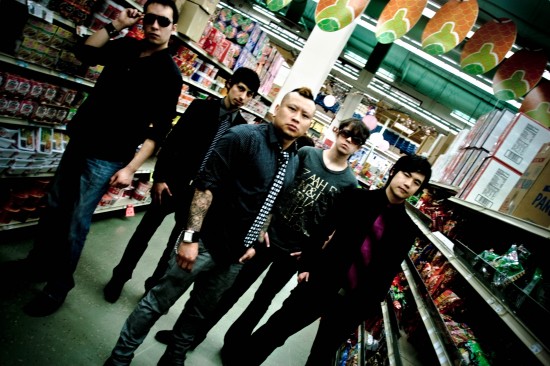
For the last several years, Asian American rock band, “The Slants”, has been in a knockdown fight with the US Patent and Trademarks Office (USPTO) over their band’s name.
The fight stems from a decision made by the USPTO to refuse registration of “The Slants” as a trademark on the grounds that the bands’ name is racially offensive to Asian Americans. The USPTO was empowered to make their decision based on the 1946 Lanaham Act, which prohibits the registration of any mark that “consists of or comprises of immoral, deceptive, or scandalous matter; or matter which may disparage or falsely suggest a connection with persons, living or dead, institutions, beliefs or national symbols, or bring them into contempt, or disrepute.”
In practice, the USPTO frequently makes such decisions unilaterally through the determination of a single case officer who by happenstance receives an application to register a questionable mark. Consequently, the USPTO has been notoriously inconsistent in their determination of a mark’s “immoral”, “scandalous” or “disparaging” content. “The Slants” is a group of Asian American musicians seeking to reclaim an offensive word they recognize as traditionally a slur; despite the USPTO’s refusal of their application, the Office has permitted the registration of “Dykes on Bikes”, which is a group named under similar reasoning.
Earlier this year, “The Slants” were dismayed when a federal court ruled against them in a lawsuit filed by the band contesting the USPTO’s decision. But yesterday, the US Court of Appeals handed down a decision that reversed that earlier ruling, and which found that the relevant portion of the 1946 Lanaham Act that bars “disparaging” trademarks violates the First Amendment.
The US Court of Appeals write in the summary of their decision:
The government cannot refuse to refuse to register disparaging marks because it disapproves of the expressive messages conveyed by the marks. It cannot refuse to register marks because it concludes that such marks will be disparaging to others. The government regulation at issue amount to viewpoint discrimination, and under the strict scrutiny review appropriate for government regulation of message or viewpoint, we conclude that the disparagement proscription of Section 2(a) is unconstitutional.
“The Slants” member Simon Tam reacted on Twitter saying that the decision was the “best present ever“. The ACLU also praised the decision, saying:
“Our First Amendment prevents the government from giving rights and benefits only to people engaged in the ‘right kind”‘ of speech, and that principle holds just as true in the trademark system,” she said in a statement. “It should be up to the public, not the government, to drive bad ideas from the marketplace.”
I have previously written in support of “The Slants” and their fight to challenge the rejection of their mark by the USPTO. While I find compelling arguments on both sides, my concerns have always been procedural in nature: if the USPTO is to be empowered in denying marks on the basis of content, there must be some comprehensive mechanism whereby that disparaging content is discerned. The decision that a trademark is offensive cannot be based primarily on the “gut feeling” of a handful of unelected individuals with no mandate to demonstrate actual harm to affected groups, or any accountability to the larger community. Absent such a fair, comprehensive, transparent and democratic process, the Lanaham Act’s prohibition of marks based on their content is arbitrary, and — in principle and in practice — a clear violation of the First Amendment.
What remains unclear, however, is how this US Court of Appeals ruling will impact the battle over other controversial trademarks. The National Asian Pacific American Bar Association (NAPABA) raised this “slippery slope” concern in their amicus brief filed against “The Slants” in their appeals case. Of particular concern is how this decision might undermine efforts by indigenous groups to petition the USPTO to reverse its registration of the “Washington Redskins”‘ trademark on the grounds that the team’s name is racist and offensive — a fight to #ChangeTheName that I wholly support.
To this point, Tam offers a rebuttal (published on 8Asians earlier this year, prior to yesterday’s Appeals Court ruling):
[I]s it worth suppressing the voices of the oppressed in fear of losing one avenue for protecting against disparaging trademark registrations? Is the solution for hate speech censorship? No, the solution is more speech. Better speech.
…That work of reappropriation spans far beyond this Asian rocker. It includes Native Americans, Black Americans, the LGBTQ community, the disabled community, women, and every group that has ever been marginalized. Studies show that reapprorpiation demonstrates a shift in power from the oppressor to the oppressed, creates a greater awareness of issues, and empowers minorities.
It doesn’t “mainstream” hate speech or makes (sic) it more acceptable. It doesn’t create a tidal wave of racism. As Eric Liu states, “wit can neuter malice…Americans can take words, language…meant to be used to hurt them and claim them in ways that change their meaning and context.”
…My case is not the floodgate for hate speech. It’s the door for anti-racist speech. Let’s open it up.
I believe any consideration of this matter that actually centers the opinions of affected groups with regard to a trademark’s possible offensiveness should be able to reconcile this issue: it should not be too radical to move to a system where stakeholders are actually asked their opinion about whether or not they find a name offensive. Regardless, it ultimately remains to be seen how “The Slants”‘ legal victory will impact the fight to #ChangeTheName.
Until then, it looks as if the holiday season came early for one Portland-based Asian American band!
